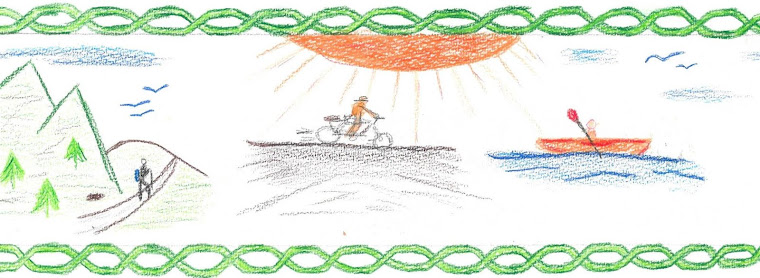Lectionary Ruminations 2.5 is a further revision and refinement
of my Lectionary Ruminations and Lectionary
Ruminations 2.0. Focusing on The Revised Common Lectionary Readings
for the upcoming Sunday from New Revised Standard Version (NRSV) of the Bible, Lectionary Ruminations 2.5 draws on over thirty years of pastoral
experience. Believing that the questions we ask are often more important
than any answers we find, without over reliance on commentaries, I intend with
sometimes pointed and sometimes snarky comments and Socratic like questions, to
encourage reflection and rumination for readers preparing to lead a Bible
study, draft liturgy, preach, or hear the Word. Reader comments are invited and
encouraged.
21:4 Where is Mount Hor? Be
aware that “Red Sea” may be a scribal error or mistranslation. Why did
they avoid Edom?
21:5 Is this the plural “you?”
Are God and Moses that closely associated? What was the miserable food
the people detested?
21:6 Why would the LORD send
poisonous snakes? You may want to take a look at the Hebrew text and consult
the gleanings in the Torah. Maybe the people needed St. Patrick as their leader
rather than Moses!
21:7 There is nothing like a
few poisonous snakes to motivate people to repent. Although it is part of
the dubious “longer ending of Mark,” how might this passage influence our
understanding of Mark 16:18?
21:8-9 What do you know about
the psychological and spiritual symbolism of the rod of Asclepius? What might
Carl Jung have said about this passage? Why did Moses make the serpent
out of bronze when God had not said anything about bronze? Is there anything
idolatrous about what Moses has fashioned? See John 3:14.
PSALM 107:1-3,
17-22
107:1 Is it redundant to say
that steadfast love endures forever?
107:2 Who are the redeemed of
the LORD?
107:3 Note the four cardinal
directions. This gathering from the four directions reminds me of an “Invitation
to the Lord’s Table”. How did the redeemed become scattered?
107:17 Must illness always be
a result of sin? What sin did I commit to recently give me a terrible head
cold?
107:18 Why would someone
loathe food?
107:19 When was the last time
you cried to the LORD??
107:20 How can a word heal? I
like the image of a healing word more than the image of a bronze snake on a
poll (see Numbers 21:9).
107:21 What are the LORD’s
wonderful works to humankind?
107:22 Are the LORD’s deeds
the same as the LORD’s wonderful works? Songs of joy, imho, do not sound like
funeral dirges.
EPHESIANS
2:1-10
2:1 What sort of death is
the author writing about? What is the difference between trespasses and sins?
Shall we read this in light of Psalm 107:17?
2:2 Who or what is the
ruler of the power of the air? What about earth, fire and water?
2:3 Does this argument
presumes a dichotomy between flesh and spirit? Is Paul saying that he was once
disobedient?
2:4-5 How are mercy and grace
related?
2:6 How can Paul speak of
himself and those to whom he was writing in the present tense?
2:7 When and what are the
ages to come? How many ages are there?
2:8 This might be one of
the most important verses for Protestantism.
2:9 Why does Paul bring up
works?
2:10 Is this a reference to
the creation accounts of Genesis? The argument seems to be that once saved by
grace, good works will follow. Therefore, by extension, good works are evidence
of our salvation.
John
3:14-21
3:14 I love The Fourth
Gospel! See Numbers 21:9. I think this is Midrash at its best! You may want to
look at what John Sanford has to say about this passage in his
Jungian/Psychological commentary on John entitled Mystical Christianity.
Who is speaking in this verse? Does this verse lend support to crucifixes but
not empty crosses?
3:15 Note that it is belief
in the Son of Man, not merely looking upon him lifted up, that bestows eternal
life.
3:16 Why do so many people
quote this verse while ignoring the two verses before it? What is the meaning
of “gave?” Should we read this in light of the akedah (Genesis
22:1-19)?
3:17 So why does so much of
popular Christianity sound condemnatory? What is the meaning of “the
world?”
3:18 What is the source of
condemnation? Is John saying that all are condemned prior to God sending the
Son? What does it mean to believe in a name?
3:19 How can we talk about
light and darkness while avoiding racial overtones? Is “shadows” or
“night” a better image than “darkness”?
3:20 But not all evil deeds
are done at night. Some evil deeds are done in broad daylight but nevertheless
concealed. How does light expose evil?
3:21 What if one does good
deeds away from the light?
ADDENDUM
I am a Minister Member of Upper Ohio Valley Presbytery of the Presbyterian Church (U.S.A.) and am serving as the Pastor of the Bethlehem United Presbyterian Church, Wheeling, WV. Sunday Worship at Bethlehem begins at 10:45 AM. Here is Bethlehem United's Facebook address: https://www.facebook.com/Bethlehem-United-Presbyterian-Church-102482088303980
